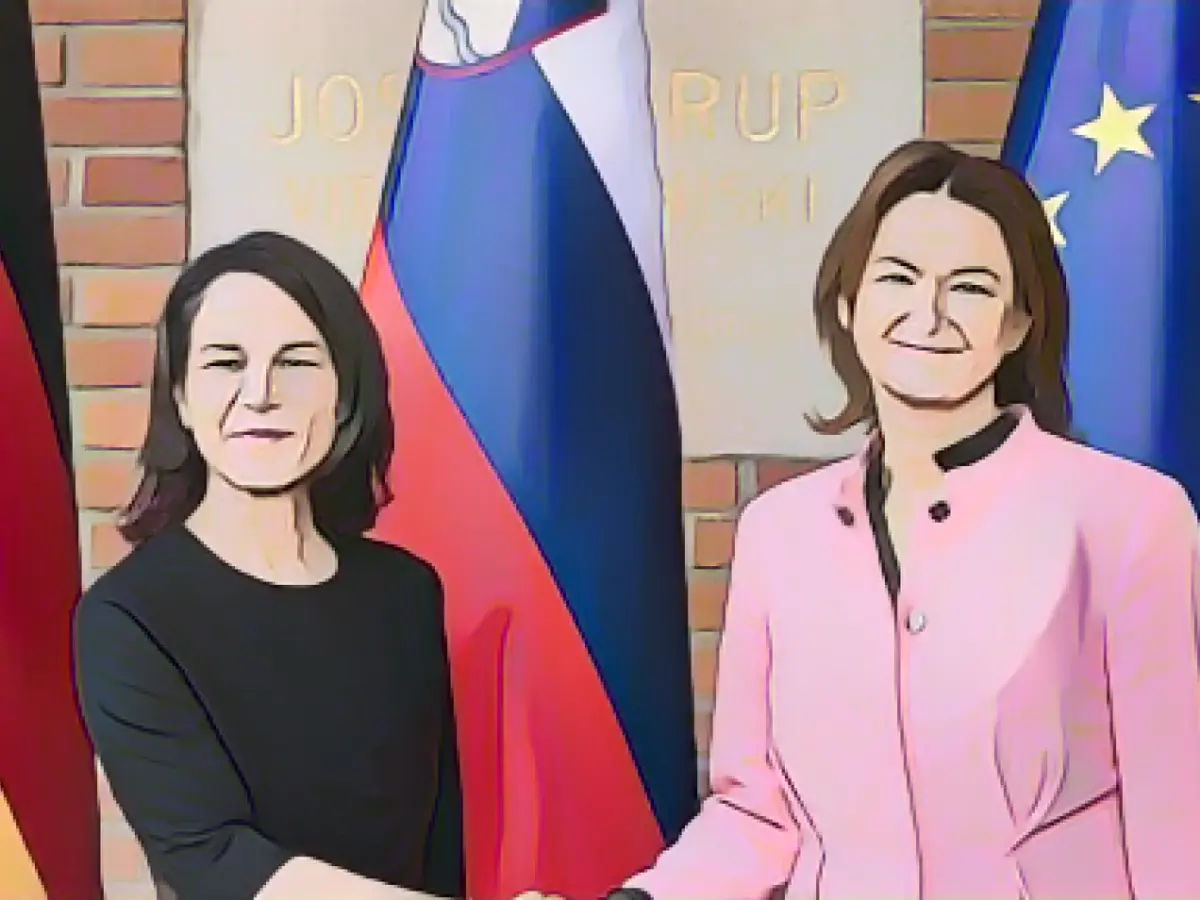Diplomacy - Germany and Slovenia: Western Balkan countries quickly into the EU
Germany and Slovenia want to boost the accession of the Western Balkan countries to the European Union in response to Russia's war in Ukraine. "It is our common goal to promote the accession of the countries of the Western Balkans to the EU," said Federal Foreign Minister Annalena Baerbock (Greens) in the capital Lubljana at a meeting with her Slovenian counterpart Tanja Fajon. Both emphasized that Russia's war of aggression had made this expansion a geopolitical necessity.
The ministers underlined their desire for intensive cooperation in the fight against the climate crisis as well as for peace in Ukraine and the Middle East. Slovenia will be a non-permanent member of the United Nations Security Council in New York for two years from January. Baerbock announced that Germany would support Slovenia's work in the UN Security Council. Especially in the context of the Russian war of aggression against Ukraine, Slovenia's membership is crucial.
Six Balkan countries in different phases
The so-called Western Balkan countries include Albania, Bosnia-Herzegovina, Kosovo, North Macedonia, Montenegro and Serbia. All countries are striving to join the EU, but are at different stages. The EU is already negotiating accession with Serbia, North Macedonia, Montenegro and Albania.
Bosnia-Herzegovina is a candidate country and Kosovo is a potential candidate country. With regard to the EU accession process, Baerbock said: "The EU cannot afford any gray areas in the face of Russia's imperialism in the middle of Europe."
Growing concerns ahead of elections in Serbia
In view of growing nationalist propaganda in the region, Berlin is looking ahead to the upcoming parliamentary elections in Serbia on December 17, said Baerbock. The "equal media access for all political candidates, which was not guaranteed in the past, is of particular concern".
Baerbock to Orban: No time for games
The Federal Foreign Minister criticized the right-wing populist Hungarian Prime Minister Viktor Orban's blockade of EU accession negotiations with Ukraine. "However, we as the European Union have also made it clear time and again that we have no time for games at this moment," she said. Orban had repeatedly emphasized that he currently considers EU accession negotiations - which must be unanimously approved by all EU states - with Ukraine to be misguided.
Hungarian head of government Viktor Orban intensified his blockade threats. In a letter to EU Council President Charles Michel, Orban wrote that expectations that the top-level meeting in Brussels would be able to decide on the start of EU accession negotiations with Ukraine and a revision of the long-term EU budget were unfounded. He therefore urges that no decisions be scheduled, as this would lead to failure in view of the lack of consensus.
Orban's letter is causing unrest in Brussels because a large majority of EU states actually want to make far-reaching decisions in favor of Ukraine at the summit on 14 and 15 December. In addition to the EU accession negotiations, this also includes a decision on further financial aid for the country. However, a decision is only possible if none of the member states veto the decision.
Disaster prevention after the floods
Against the backdrop of the climate crisis, Baerbock visited a logistics center to find out about civil disaster protection following the flood disaster in Slovenia in the summer. At the beginning of August, the floods affected two thirds of Slovenia. The damage was estimated at half a billion euros.
The "fight against the climate crisis, the greatest security threat to humanity" is the linchpin in the implementation of the German-Slovenian action plan, which is intended to advance future issues.
Baerbock: Israel must comply with international humanitarian law
In view of the dramatic humanitarian situation in the Gaza Strip, Baerbock called on Israel to comply with international law. "Israel has the right to protect its population within the framework of international law. However, the decisive factor is how Israel proceeds in this new phase," she said. Israel has a responsibility to alleviate civilian suffering and protect the civilian population.
They are currently working on a new ceasefire. In this context, "Arab countries also need to stand up for the fact that the ongoing security threat to Israel from Hamas cannot continue".
Baerbock and Fajon called for a two-state solution between Israelis and Palestinians. Fajon said of the situation in the Gaza Strip: "This really is a catastrophe on a scale where I can say that the world has really failed this test of humanity." With regard to Israel, she added that Slovenia was very concerned "about the humanitarian violations of international law and human rights in Gaza".
Read also:
Source: www.stern.de






